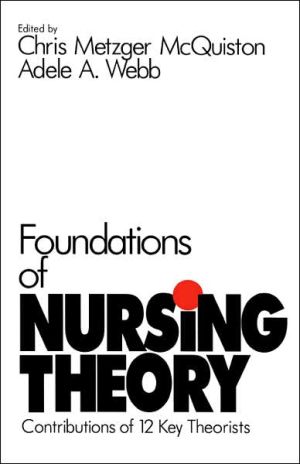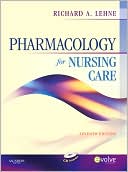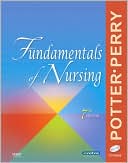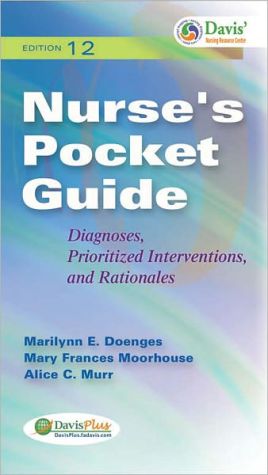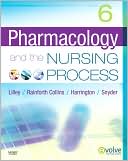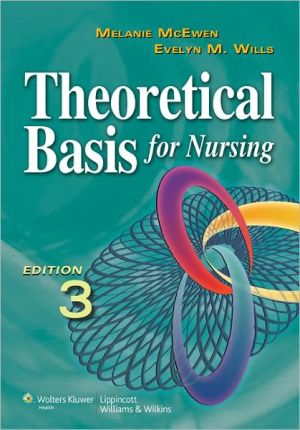Foundations of Nursing Theory: Contributions of 12 Key Theorists
Addressing many of the primary conceptual frameworks and theories in nursing, Foundations of Nursing Theory offers concise, informative descriptions of nursing's philosophical origins. The book, a compilation of volumes from Sage’s acclaimed Notes on Nursing Theories series, not only assays the development, assumptions, and broad applications of each nursing theory but also provides specific examples of how it relates to both research and practice.\ \ \ The book...
Search in google:
Addressing many of the primary conceptual frameworks and theories in nursing, Foundations of Nursing Theory offers concise, informative descriptions of nursing's philosophical origins. The book, a compilation of volumes from Sage's acclaimed Notes on Nursing Theories series, not only assays the development, assumptions, and broad applications of each nursing theory but also provides specific examples of how it relates to both research and practice. Kathryn Hopkins Kavanagh This book presents in detail 12 leading nursing theories. Complex material is presented in interesting ways, usually contextualized within both the theorist's background and related theoretical material. With allegiant reference to the original works of the theorists, the book informs with a forthright presentation that is concise, substantive, and thorough. The purpose is presentation of key nursing theories for students. It brings classic materials together with contemporary research and applications. Another goal of the editors is acknowledgment of the range and diversity of thinking within nursing. Designed for students of nursing theory, this text does not abstractly argue for use or need of theory. Correspondingly, it addresses philosophical derivation only in relation to each theorist's orientation and subsequent theory development. The editors and contributors are experienced nursing educators, researchers, and practitioners amply familiar with and credible in their deliberation of specific theorists and theories. An assemblage of relevant primary and secondary sources and a glossary for each theorist's work are additional strengths of this book. In combination with comparable formats of entries, the outcome is a valuable reference that is, for the most part, both highly readable and comprehensive. This is a commendably useful and usable presentation of nursing theory. It condenses the most relevant aspects of each theoretical approach, related research, and clinical and nonclinical applications. Often with pithy conciseness, it helps fill a need for ready access to diverse and complex material.
ForewordPt. IMartha Rogers: The Science of Unitary Human BeingsPt. IIImogene King: A Conceptual Framework for NursingPt. IIICallista Roy: An Adaptation Model FrameworkPt. IVDorothea Orem: Self-Care Deficit TheoryPt. VRosemarie Parse: Theory of Human BecomingPt. VIMargaret Newman: Health as Expanding ConsciousnessPt. VIIPaterson and Zderad: Humanistic Nursing TheoryPt. VIIIMadeleine M. Leininger: Cultural Care Diversity and Universality TheoryPt. IXFlorence Nightingale: An Environmental Adaptation TheoryPt. XHildegard E. Peplau: Interpersonal Nursing TheoryPt. XIBetty Neuman: The Neuman Systems ModelPt. XIIIda Jean Orlando: A Nursing Process TheoryAuthor IndexSubject IndexAbout the EditorsAbout the Authors
\ From The CriticsReviewer: Kathryn Hopkins Kavanagh, PhD, RN(University of Maryland at Baltimore School of Nursing)\ Description: This book presents in detail 12 leading nursing theories. Complex material is presented in interesting ways, usually contextualized within both the theorist's background and related theoretical material. With allegiant reference to the original works of the theorists, the book informs with a forthright presentation that is concise, substantive, and thorough.\ Purpose: The purpose is presentation of key nursing theories for students. It brings classic materials together with contemporary research and applications. Another goal of the editors is acknowledgment of the range and diversity of thinking within nursing.\ Audience: Designed for students of nursing theory, this text does not abstractly argue for use or need of theory. Correspondingly, it addresses philosophical derivation only in relation to each theorist's orientation and subsequent theory development. The editors and contributors are experienced nursing educators, researchers, and practitioners amply familiar with and credible in their deliberation of specific theorists and theories.\ Features: An assemblage of relevant primary and secondary sources and a glossary for each theorist's work are additional strengths of this book. In combination with comparable formats of entries, the outcome is a valuable reference that is, for the most part, both highly readable and comprehensive.\ Assessment: This is a commendably useful and usable presentation of nursing theory. It condenses the most relevant aspects of each theoretical approach, related research, and clinical and nonclinical applications. Often with pithy conciseness, it helps fill a need for ready access to diverse and complex material.\ \ \ \ \ Kathryn Hopkins KavanaghThis book presents in detail 12 leading nursing theories. Complex material is presented in interesting ways, usually contextualized within both the theorist's background and related theoretical material. With allegiant reference to the original works of the theorists, the book informs with a forthright presentation that is concise, substantive, and thorough. The purpose is presentation of key nursing theories for students. It brings classic materials together with contemporary research and applications. Another goal of the editors is acknowledgment of the range and diversity of thinking within nursing. Designed for students of nursing theory, this text does not abstractly argue for use or need of theory. Correspondingly, it addresses philosophical derivation only in relation to each theorist's orientation and subsequent theory development. The editors and contributors are experienced nursing educators, researchers, and practitioners amply familiar with and credible in their deliberation of specific theorists and theories. An assemblage of relevant primary and secondary sources and a glossary for each theorist's work are additional strengths of this book. In combination with comparable formats of entries, the outcome is a valuable reference that is, for the most part, both highly readable and comprehensive. This is a commendably useful and usable presentation of nursing theory. It condenses the most relevant aspects of each theoretical approach, related research, and clinical and nonclinical applications. Often with pithy conciseness, it helps fill a need for ready access to diverse and complex material.\ \ \ 3 Stars from Doody\ \
